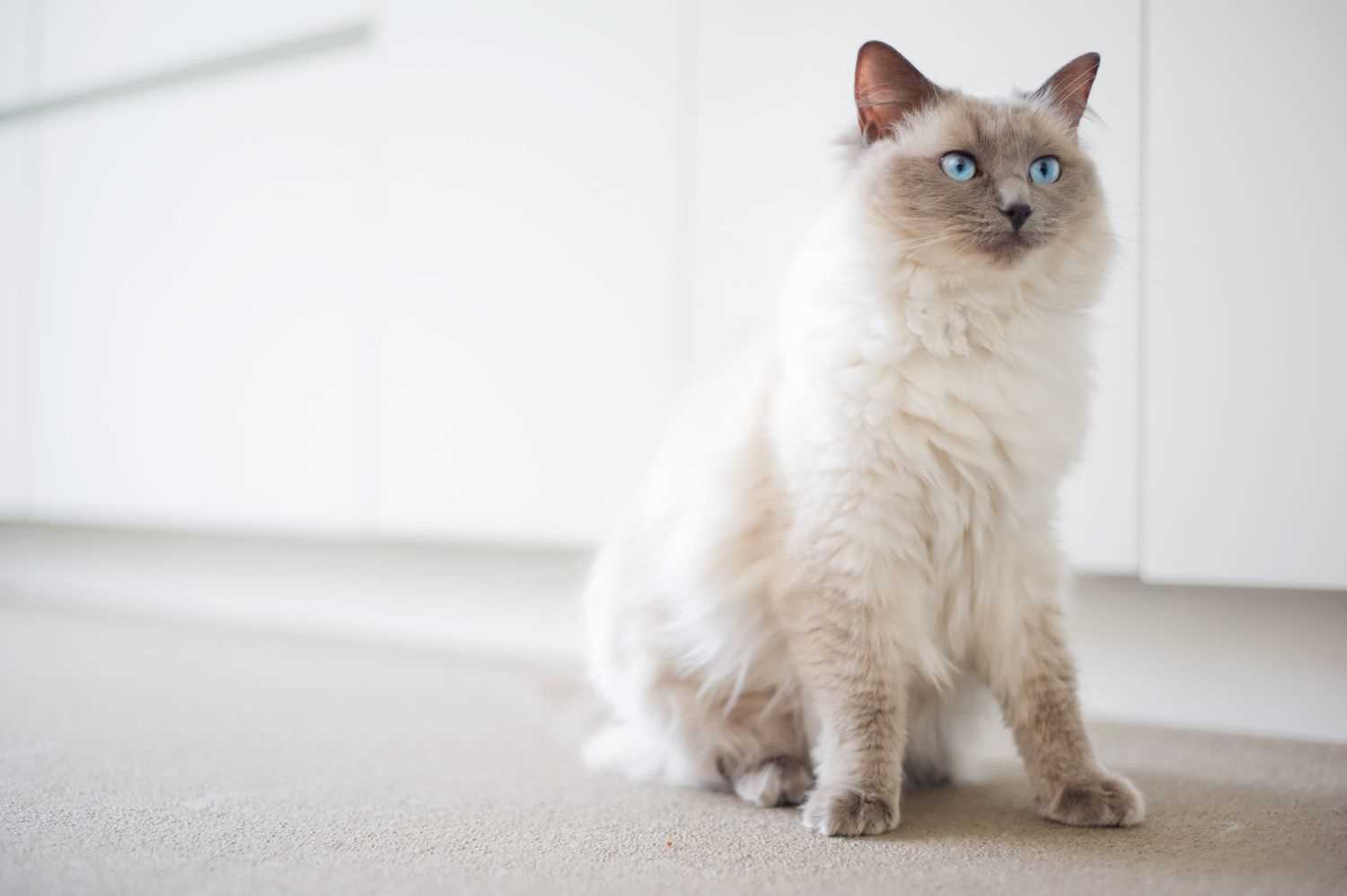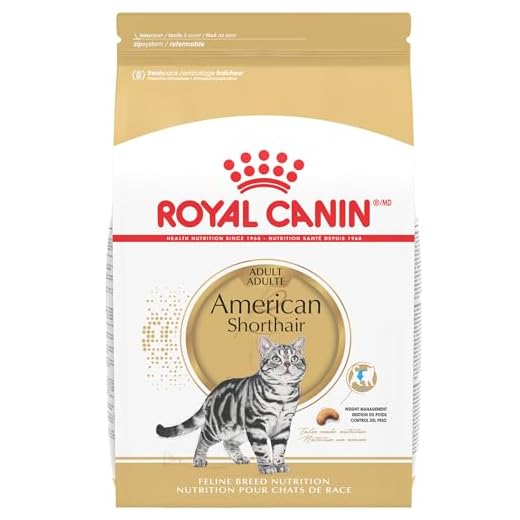




If you’re considering adding a furry friend to your household, look into these specific types of felines that thrive in a home environment. This article provides insights into various types of cats that are well-suited for living indoors. Whether you seek a playful companion or a calm presence, you’ll find options that match your lifestyle and preferences.
This guide is especially useful for prospective pet owners who want to ensure their new addition will be comfortable and happy in a confined space. Each section highlights personality traits, activity levels, grooming needs, and adaptability, allowing you to make an informed choice.
<pWithin this article, you'll discover profiles of several breeds known for their friendly demeanor, low maintenance, and compatibility with indoor life. From the affectionate and sociable to the more independent types, there’s a perfect match for everyone. Explore how these pets can enrich your daily life while fitting seamlessly into your home routine.
Ideal Companions for Home Living
Choosing the right companion for an apartment or a house is vital for a harmonious living situation. Some breeds are particularly suited for life inside, displaying traits that align well with a more contained environment.
One notable option is the Ragdoll. Known for their affectionate nature, they thrive on human interaction and enjoy being part of family activities. Their calm demeanor makes them great for households with children or other pets.
Characteristics of Suitable Breeds
Several factors influence the compatibility of a feline with a confined space. Look for sociable, playful, and adaptable personalities. Here are some common traits to consider:
- Affectionate: Enjoys human companionship and seeks attention.
- Playful: Engages in interactive play, reducing boredom and promoting physical activity.
- Quiet: Tends not to be overly vocal, making them suitable for close quarters.
- Adaptable: Adjusts easily to new environments and routines.
In addition to these traits, the size and energy level of the animal can also impact suitability. Smaller, less active varieties often adapt better to limited space while still providing companionship.
| Breed | Personality | Activity Level |
|---|---|---|
| Scottish Fold | Affectionate, calm | Moderate |
| British Shorthair | Friendly, easygoing | Low |
| Persian | Gentle, laid-back | Low |
Understanding these attributes can guide potential owners in selecting the perfect companion for their home environment, ensuring a joyful and well-suited match.
Calm Companions for Apartment Living
Opting for a serene feline can greatly enhance the comfort of your living space. Certain types of these pets are particularly suited for confined areas, as they thrive in quieter environments and require less stimulation than their more energetic counterparts.
Among the most suitable candidates are those known for their gentle nature and relaxed demeanor. These pets often enjoy lounging and are content with minimal activity, making them perfect companions for apartment dwellers.
Characteristics of Relaxed Felines
Several traits make specific types of these animals ideal for apartment life:
- Low Energy Levels: Preferring to nap or relax rather than engage in high-energy play.
- Affectionate Behavior: Enjoying close companionship with their human friends.
- Adaptability: Adjusting easily to smaller living spaces without displaying stress.
Choosing the right pet can contribute to a peaceful home atmosphere. Consider those that possess the qualities mentioned above to ensure a harmonious living experience.
While each individual animal has its unique personality, selecting from the quieter types can lead to a fulfilling companionship that complements apartment living.
Low-Maintenance Companions Ideal for Busy Owners
Choosing a feline friend that requires minimal care can significantly enhance the lives of those with busy schedules. Certain types of cats thrive with less attention and grooming, making them suitable for individuals who may not have a lot of time to dedicate to pet care.
Some breeds are known for their easy-going nature and self-sufficiency. These animals often require less frequent grooming and can be quite independent, allowing them to flourish even in a bustling household.
Characteristics of Low-Maintenance Companions
When selecting a less demanding furry companion, consider the following traits:
- Minimal Grooming Needs: Some species have short hair that does not mat easily, reducing the frequency of grooming sessions.
- Independent Behavior: Certain pets are more self-sufficient, enjoying time alone without becoming anxious.
- Calm Demeanor: A relaxed personality helps these pets acclimate to a busy environment, minimizing stress for both the animal and the owner.
In addition to these traits, it’s beneficial to consider the energy level of the animal. Breeds with moderate energy requirements can engage in play independently, allowing owners to focus on other tasks.
Ensuring a comfortable and safe environment, along with providing stimulating toys, can keep these companions entertained. Routine veterinary care remains essential for their health, so scheduling regular check-ups is advisable.
Playful Indoor Companions That Love Interaction
Choosing a spirited companion can greatly enhance the joy of living together. Certain types are especially known for their playful nature and love for engaging with their human friends. These charming pets thrive on interaction and require regular playtime to stay happy and healthy.
One breed that stands out is the Abyssinian. Known for their curiosity and energy, these animals enjoy exploring their surroundings and participating in games. They are affectionate and often follow their owners around, seeking out opportunities for interaction. Another playful type is the Bengal, which possesses a lively personality and an impressive level of intelligence. They enjoy interactive toys and are known for their playful antics, making them delightful companions.
Characteristics of Playful Companions
When selecting a lively housemate, consider the following traits that contribute to their playful disposition:
- Activity Level: Energetic types need daily playtime and mental stimulation.
- Affectionate Nature: Enjoy close contact with their owners, often seeking cuddles and attention.
- Intelligence: Quick learners who thrive on interactive toys and games.
These features make certain companions more suited to an interactive lifestyle, ensuring a joyful and engaging environment.
In addition to Abyssinians and Bengals, the Ragdoll is another breed that loves to play. Known for their laid-back demeanor, they enjoy gentle play and are often happy to be carried around. They form strong bonds with their owners, making them excellent companions for families and individuals alike.
In conclusion, selecting a playful companion that thrives on interaction can greatly enhance the living experience. Be sure to consider their personality traits, energy levels, and affection needs to ensure a rewarding companionship.
Allergy-Friendly Felines for Sensitive Homes
For those with sensitivities, choosing a feline companion can pose challenges. Certain types of pets produce lower levels of allergens, making them more suitable for sensitive households. Selecting a breed known for reduced allergenic properties can significantly enhance the living experience.
Some individuals are particularly reactive to proteins found in saliva, skin, and urine. Breeds that produce fewer of these proteins may offer a more comfortable option. Regular grooming and cleaning can also help minimize allergens in the environment.
Characteristics of Allergy-Friendly Companions
- Coat Type: Short-haired varieties generally trap fewer allergens compared to long-haired ones.
- Grooming Needs: Regular grooming can help reduce dander and loose hair, which contribute to allergic reactions.
- Personality Traits: Some breeds are known to be more affectionate and social, which can enrich the home atmosphere without exacerbating allergies.
It’s also beneficial to consider environmental factors. Frequent cleaning, using air purifiers, and establishing pet-free zones can create a more comfortable living space. Making informed choices regarding the type of companion can lead to a harmonious coexistence.
| Traits | Benefits |
|---|---|
| Low-Shedding | Reduces hair and dander in the home |
| Minimal Grooming | Less chance of spreading allergens |
| Affectionate Nature | Encourages bonding without triggering reactions |
By carefully selecting a suitable companion, individuals can enjoy the companionship of a pet while managing allergies effectively.
Quiet Companions Ideal for Compact Living
Choosing a serene feline friend can significantly enhance the living experience in smaller environments. Certain species exhibit calmer temperaments and lower activity levels, making them perfect for tight quarters.
Among the options, the British Shorthair stands out with its laid-back demeanor. This breed is known for being affectionate yet not overly demanding, allowing for a peaceful coexistence in limited spaces.
- British Shorthair: Calm and affectionate, they enjoy lounging and are less likely to create chaos.
- Scottish Fold: Gentle and easygoing, they adapt well to indoor life and have a quiet presence.
- Ragdoll: Known for their docile nature, they often prefer to relax and cuddle rather than engage in high-energy play.
- Exotic Shorthair: Similar to Persians but with a shorter coat, they are friendly and enjoy a calm environment.
- Chinchilla: This breed is known for its sweet nature and is typically not very vocal.
When selecting a companion, consider their personality traits and energy levels. A peaceful environment can be maintained by choosing a species that aligns with a quieter lifestyle, ensuring comfort for both the pet and the owner.
Best cat breeds for indoor cats
Features
| Part Number | FC50 |
| Model | FC50 |
| Warranty | Globlazer customer service team is here to assist you with personalized and expert support, both prior to and following your purchase. Should you encounter any difficulties with this cat tree, do not hesitate to reach out to us. |
| Color | Dark Grey |
| Size | 50inch |
Features
| Color | Blue |
| Size | 2 diffuser,6 refill |
Features
| Part Number | 150g Powder |
| Model | 718122127955 |
| Size | 150g Powder |
Features
| Model | ICT-01 |
| Warranty | 1 Year |
| Color | Green |
Features
| Part Number | ZCT002 |
| Model | ZCT002 |
| Warranty | Our products come with a six - months warranty. In case of quality issues within this period, we'll offer free repairs or replacements. |
| Color | Light Grey |
Features
| Part Number | NHC15004 |
| Size | 10 Pound (Pack of 1) |
Features
| Part Number | 549631 |
| Model | 549631 |
| Color | Brown |
| Size | 5.5 Pound (Pack of 1) |
Video:
FAQ:
What are some of the best cat breeds for indoor living?
Some of the best cat breeds for indoor living include the Ragdoll, British Shorthair, and Persian. Ragdolls are known for their gentle and affectionate nature, making them great companions. British Shorthairs are calm and easygoing, which helps them adapt well to indoor environments. Persians, with their luxurious coats and sweet personalities, also thrive as indoor cats. Each breed has unique traits that can suit various lifestyles, so it’s important to consider your living situation and personal preferences when choosing a breed.
How do indoor cats differ from outdoor cats in terms of behavior and health?
Indoor cats typically exhibit different behaviors compared to outdoor cats. They tend to be more sedentary due to limited space and stimulation, which can lead to obesity if not managed with playtime and exercise. Indoor cats are also generally safer from predators, diseases, and accidents that outdoor cats face. However, they may need more mental stimulation through toys and interactive play to prevent boredom. Health-wise, indoor cats often live longer because they are less exposed to outdoor dangers, but they may require regular veterinary check-ups to monitor for common indoor health issues.
What factors should I consider before adopting an indoor cat?
Before adopting an indoor cat, consider several factors. First, assess your living space; make sure it is safe and comfortable for a cat. Think about your lifestyle and how much time you can dedicate to interacting with your pet, as cats need social interaction and play. Additionally, consider any allergies in your household and the grooming needs of different breeds. It’s also important to evaluate your budget for food, litter, and veterinary care. Lastly, ensure that you can provide enrichment, such as scratching posts and toys, to keep your cat engaged and happy.











